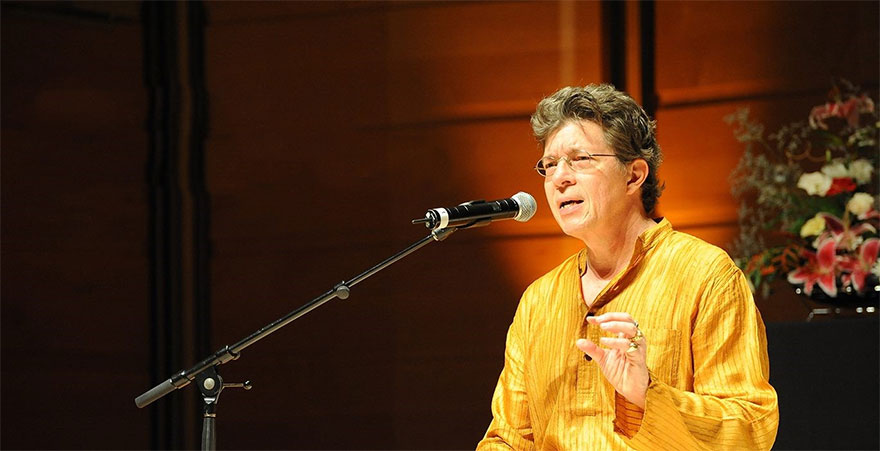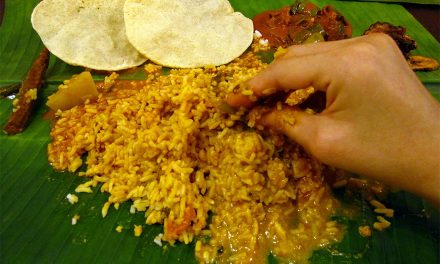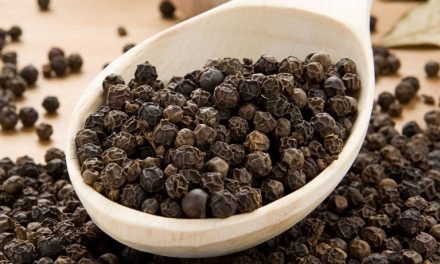Dr. Robert Svoboda is the first Westerner ever to graduate from a college of Ayurveda and be licensed to practice Ayurveda in India. During and after his formal Ayurvedic training he was tutored in Ayurveda, Yoga, Jyotish, Tantra and other forms of classical Indian lore by his mentor, the Aghori Vimalananda.
The author of more than a dozen books, he lived in India for more than a decade, after which he has continued to spend much of each year here and in other lands.
1. The tennis player Steffi Graf has recently been appointed as the brand ambassador of Kerala’s Ayurveda. Do you think this move will spur people into noticing Ayurvedic solutions to ill-health?
Having a brand ambassador will certainly increase Ayurveda’s profile in the world, and may cause some people to look at it more closely; it should also be good for tourism in Kerala. Since however most people have no real understanding of what Ayurveda is, and many people who do know of it think of it as a spa treatment, it is not easy to see how Ms. Graf’s activities can change this situation unless she somehow starts to educate people on Ayurveda’s real significance.
2. Do you think globalization has affected the quality of Ayurvedic products negatively?
That question has a complex answer. To the extent that globalization has forced producers to improve their manufacturing procedures to reduce microbial and metallic contamination it has actually improved the quality of Ayurvedic products. “Globalization” in the strictly economic sense however has merely increased the sales of all products that are termed “Ayurvedic”, when many such products are only marginally so. Producers who rush to cash in on the “Ayurveda bonanza” often procure raw materials with minimal attention to sustainable harvesting, which will without doubt negatively affect the quality of Ayurvedic products in the future.
3. What are your views on the United Nation’s declaration of June 21st as International Yoga Day?
On the one hand, having an International Yoga Day brings increased awareness about yoga and is I believe generally good for India; on the other, as with Ayurveda what do people really know about yoga, and how much being presented as “yoga” is really nothing more than a fancy workout (or as Vimalananda termed it, a set of “physical jerks”)?
[wp_ad_camp_1]
4. Are you writing another book? What is it about?
I am writing another book, but I don’t yet know what it is about – meaning that I am as yet in the early phases. Vastu: Breathing Life into Space, my most recent book, was published in 2013 in the USA but has not yet been published in India. Hopefully soon!
5. What inspired you to get into Ayurveda and other Indian systems and how has it affected you in your personal evolution?
Well, Ayurveda kind of found me: though I had been admitted to med school in the US in 1973 I decided to postpone those studies to travel, and when I was in Nepal in the latter part of that year the Peace Corps physician, Dr. Larry True, introduced me to Ayurveda. And suddenly, a couple of months later, I ended up meeting just the right people at just the right moments and found myself admitted into Pune’s Tilak Ayurveda Mahavidyalaya. To study Ayurveda I had to study Sanskrit, which opened a vast new literary world to me; and 16 months after I began my Ayurvedic studies, and directly because of those studies, I met Vimalananda, whose influence on my personal evolution has been incalculable.
6. For an aspiring student of the Veda sampradaya what is the message you have?
A two-word message: bhuta shuddhi. The entire world of manifestation in general, and our human bodies in particular, are composed of the Pancha Mahabhutas, the Five Elements. The more these elements are purified in ourselves the better each of will be able to perceive reality. Of these five perhaps agni, or fire, is most important, because it can transform density into subtlety and vice versa. The first word of the first verse of the first hymn of the first mandala of the first of the Vedas, the Rg Veda, is agni; to truly study the Veda or any body of wisdom that has emerged from the Veda it is I believe essential to develop a personal relationship with fire, however that might manifest for you.
7. How is it possible to master so many different systems like Ayurveda, Jyotish, Vastu and Tantra? How have you managed to do this in one lifetime?
Easy: I haven’t mastered any of them! I’ve been exceedingly fortunate to have learned from the best in all these fields, and I have learned quite a lot about a lot of things; but the more I learn, the more I realize how ignorant I really am, and how much more there is to learn. To achieve competence in any of these fields you must relentlessly apply adequate time and energy to them daily for many years. Fortunately, all these systems are related to one another, are actually varying parts of one unified whole, and so the more you study one aspect, the better able you become to comprehend the others. Just get started learning & never stop, and you will eventually succeed.
Source: swarajyamag.com











the article is good except that indian government should think of globalizing this knowledge, like yoga recently, on a mass scale. there are lot of people ready to welcome it. health care costs with Ayurveda will be hardly 5% compared to allopathic system. there will be no need for health care insurance.
Considering the rapidly developing popularity of Ayurveda, the GOI should very soon set up an Authized Agency for certifying Ayurvedic Products and only those products certified by the Agency should be allowed to use the Term Ayurvedic Product. This should take care of the real fear eressed by Dr. Robert Svoboda on the quqlity of Ayurvedic products deteriorating due to increase in demand.
Suggestion of Aiyar is very good. Cashing on the growing popularity of “Ayurvedic” remedies” and “organic” foods, many big companies have come up to cash on their demand. As a result one does not know how genuine their claims are. I feel the Government should set up “Ayurvedic Council” and “Organic Foods Laboratory” to ensure authenticity of these products.
Ayurveda will have to be the next choice in life, like it or lump it.
It is too ancient to be ignored.
Apart from setting up an authorized agency, we should ensure that no corporate enters and spoils the entire set-up. It is pathetic, we have to depend on corporate for each and everything right from water,vegetable, fruits and whatnot. This leads to monopoly and price rise, the farmer does not get his dues he deserves. Only inclusive growth – the basic principle of Hinduism – all our festivals are based on this principle- would establish harmony in the society.